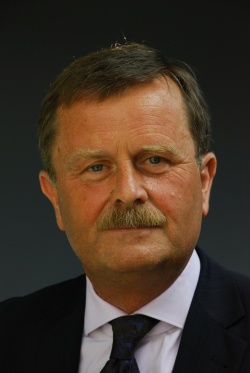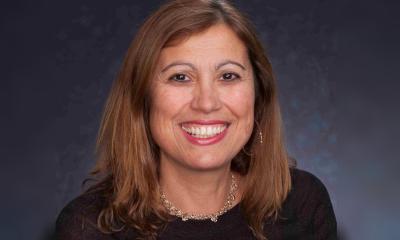How to overcome future staff shortages
The Medica Education Conference has been realigned and also tackles current issues from the worlds of politics and management, amongst others in a symposium on occupational and educational politics. In this context, Professor Ulrich Montgomery, President of the German Medical Association, will speak about the next generation of medical staff under the heading ‘Calling, a profession or a job?’
Interview: Brigitte Dinkloh

Complaints about workloads among doctors, including a recent statement from Prof. Vogt of the German Society of Surgery, are continuous. The obligation for documentation, quality assurance and tumour boards consume considerable hospital time. How bad is the workload really and how can we ensure that the medical profession remains attractive to young people?
‘It’s true: there are workload increases, lack of time and the pressure to perform. This isn’t my conclusion; it’s the result of a study recently introduced by the University of Applied Sciences Gelsenkirchen.
‘Despite rising numbers of patients, every second doctor surveyed stated that there had been cuts to physician numbers in their departments. Half of them also believe that there is not enough training on the wards and too little time for patients. Therefore, it’s good to see that the reigning coalition partners are becoming serious about the hospital reform announced in the coalition agreement.
‘We need to overcome serious staff shortages and the associated high workload. We need a continuous adaption of hospital funding to the actual costs incurred, and we also need to find a sustainable solution to the problem of insufficient investment funding by the German federal states. If we achieve this, the framework for hospital medical professionals will become more attractive again.’
How can we ensure that all the necessary ‘ancillary’ work does not lead to negligence in the actual work with patients?
‘Unnecessary bureaucracy is the bane of many a doctor’s life. A survey by the Medical Association’s Hamburg branch has shown that bureaucracy is the most pressing problem for doctors in private practice, as well as hospital doctors – even more so than economic issues. Even though de-bureaucratisation is a never-ending task, policies and self-governance need to liberate doctors from unnecessary administrative tasks – and obviously we need to take a close look at which tasks really need to be performed by doctors and which can be delegated to other medical professions, whilst the overall medical responsibility remains with the doctors.’
Generation Y is more insistent on a work/life balance than previous generations. A recent study in the USA has now found that the quality of specialist medical training decreases with shorter shifts and that the quality of patient care suffers as a result.
What possibilities do you see for the regulation of work schedules in such a way that both entitlements are being met sufficiently, i.e. high quality patient care as well as a contented and not overworked specialist medical staff?
‘Initially, the objective is to verify the degree of evidence in the study you mentioned. You say Generation Y and the demand for a reasonable work-life balance. In this case, it doesn’t make sense to call for an extension of daily working hours if many young doctors reject these endeavours.’
In the long term, how might the hospital staff issue be resolved?
‘In Germany it starts with the reform of the rigid, inflexible case rate payment scheme. Hospitals in areas of low population density can hardly cover their costs with the payments received based on the diagnosis-related group (DRG) system, which also increasingly affects the available staff. Therefore, we must move away from an approach based 100% on this flat rate per case system.
‘Hospitals and hospital administrators need more scope for discretion in their budget negotiations, to safeguard local hospital treatment in structurally weak areas, as well as the financing of cases involving extreme costs. We also need a benchmark that’s methodically sound and which helps to determine how increasing expenditure through adjustments of tariffs, increased premiums for indemnity insurance, and energy costs, can be refinanced.’
Specialist medical training is leaning towards increased specialisation; similar to the USA this means that doctors in Germany could end up being responsible for just one organ/one body part. What are the pros and cons of this?
‘The scientific and technological advances in medicine do indeed result in an increased specialisation in the individual specialties. However, even the highest specialisation is built on a “fundamental” subject. The establishment of medical advanced training terminology within the regulations on further education takes into account medical developments as well as requirements for adequate care for the population.
‘However, it’s not just about specialisation. Increasingly, medical training and advanced medical training also focus on a holistic approach, inclusive of “talking medicine”. This can, for instance, be seen in the respective configuration of the communication-based parts of the National Competence-based Catalogue of Learning Objectives for Medical Degrees, or in the planning for an obligatory qualification in professional doctor/patient interaction in the context of further training.’
In your view, are there any exemplary degree and training courses, and are there any other nations from which the German specialist societies could learn?
‘Doctors who have undergone basic or further medical training in Germany have an excellent reputation abroad. We assume that the specialist medical societies keep an eye on international developments. We also value the organisation of advanced medical training through the medical associations in the respective Federal states as an important quality characteristic, because these “neutral” umbrella organisations have their eyes on medical issues beyond the boundaries of individual medical specialties.’
19.11.2014





